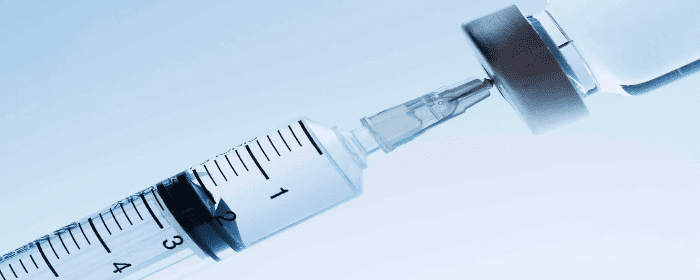Multiple sclerosis is a challenging disease for patients, caregivers, and physicians. MS takes function away from patients, causing them to lose the ability to walk, to feel, or to see. The symptoms of MS vary from patient to patient. In fact, the symptoms of multiple sclerosis can even change in the same patient over time. Wherever MS destroys covering on nerve cells, there are the symptoms of the disease. These functional deficits are challenging for caregivers who provide support for patients. MS is also challenging for physicians because it is a difficult disease to treat.
Several disease-modifying treatments have been released over the past decade that has changed the course of MS for some patients. None is a cure. As such, researchers are continually looking for new treatments for multiple sclerosis.
One of the more promising potential MS treatments is thymosin beta 4. Thymosin beta 4 is a small protein (i.e. peptide) that the body produces naturally. When the protein is injected into animals, it produces regenerative and restorative benefits such as improved wound repair and blood vessel and nerve regeneration.
When scientists want to test new treatments for MS, they often use a model of the disease called experimental autoimmune encephalomyelitis (EAE). When researchers cause EAE in mice, it causes the mice to experience symptoms and changes that are quite similar to MS in humans. Once mice are given EAE, scientists can then see if a particular treatment can make the mice better.
This is precisely what Dr. Zhang and co-researchers accomplished; they caused experimental MS in mice and treated them with either thymosin beta 4 or placebo (saline) injections. Mice began recovering from EAE as early as 11 days after treatment with thymosin beta 4. Thymosin beta 4 treatment reduced the severity of experimental MS in mice by about half compared to those who received a placebo. The statistically significant benefit lasted at least 30 days after thymosin beta 4 treatment.
The researchers performed additional experiments to determine how thymosin beta 4 improved function in mice with EAE. Based on experiments in mouse nerve cells, thymosin beta 4 appears to reduce inflammation and increase oligodendrogenesis, which is the growth of new cells the replace the covering on nerves.
While this work was performed on mice and will need to be confirmed in humans, it is an exciting lead in the development of new therapies for MS. Since thymosin beta 4 appears to be safe, this small protein may one day be among the disease-modifying treatments for MS.
Reference: Zhang, J., et al. (2009). Neurological Functional Recovery After Thymosin Beta4 Treatment in Mice with Experimental Auto Encephalomyelitis. Neuroscience. 2009 Dec 29; 164(4): 1887-1893.


 St. Petersburg, Florida
St. Petersburg, Florida
